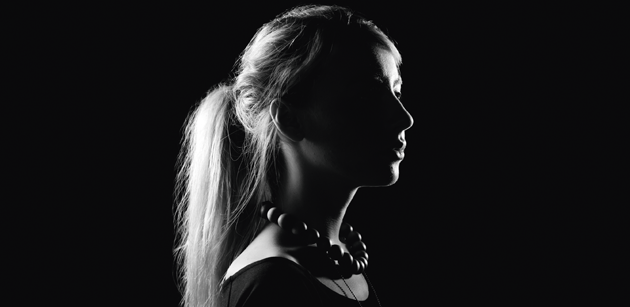Luna, 18, lausanne

Luna* began having problems in primary school, especially with her classmates. “The other kids would often tease me, and the teachers wouldn’t do anything. They gave me no support and didn’t listen.
I felt as though they were even annoyed by the situation, which brought them out of their comfort zone. I was alone most of the time and could only rely on myself to get through the school year.” The young girl managed to improve her marks and eventually completed secondary school. “I came out of that period exhausted, and that did not help to boost my con dence. It was hard to imagine gaining any self-assurance. In 2010, when I was only 13, that awkwardness developed into eating disorders. I lost 20 kg in a few months.”
That’s when Luna was taken in at the Interdisciplinary Division for Adolescent Health (DISA) at CHUV. “It was the only place where I felt comfortable, understood and heard. Teens need recognition, but also need to be listened to without being judged. Lots of adults tend to overreact, but I don’t think that’s the right way to handle a problem with a teenager. It’s just the opposite. They should teach young people how to put things into perspective and approach problems calmly.”
But the young woman still had to seek medical care at facilities designed for children. “I distinctly remember one situation when I was 16. I went to a paediatric hospital, initially for a simple potassium infusion. The health care sta decided I had to stay there. I’d tried to explain repeatedly the instructions from my family doctor, but no one would listen to me. Nothing I said mattered. I wanted to be treated like an adult, not like a child. Being hospitalised next to babies made me uncomfortable. The nurses referred to me as “the big girl”, addressed me informally and talked to me the way they talked to the other children. I didn’t like that.”
Luna also wanted to talk privately about her situation with the medical sta . “In paediatric hospitals, the doctors addressed my mother, right in front of me. But I’d been completely aware of the dangers and the consequences ever since my health problems started. I wanted to have my say.”
Today, Luna is on the road to recovery. “My wounds are slowly healing. They were deep.” Despite her health problems, she has continued going to school. “I found support from some teachers but also from hypnosis. Being able to express myself through art and especially music has helped me move on.” Now 18, she continues her treatment at DISA. “I’m very close to my doctor, who has monitored and understood me throughout my adolescence.”
* Name has been changed